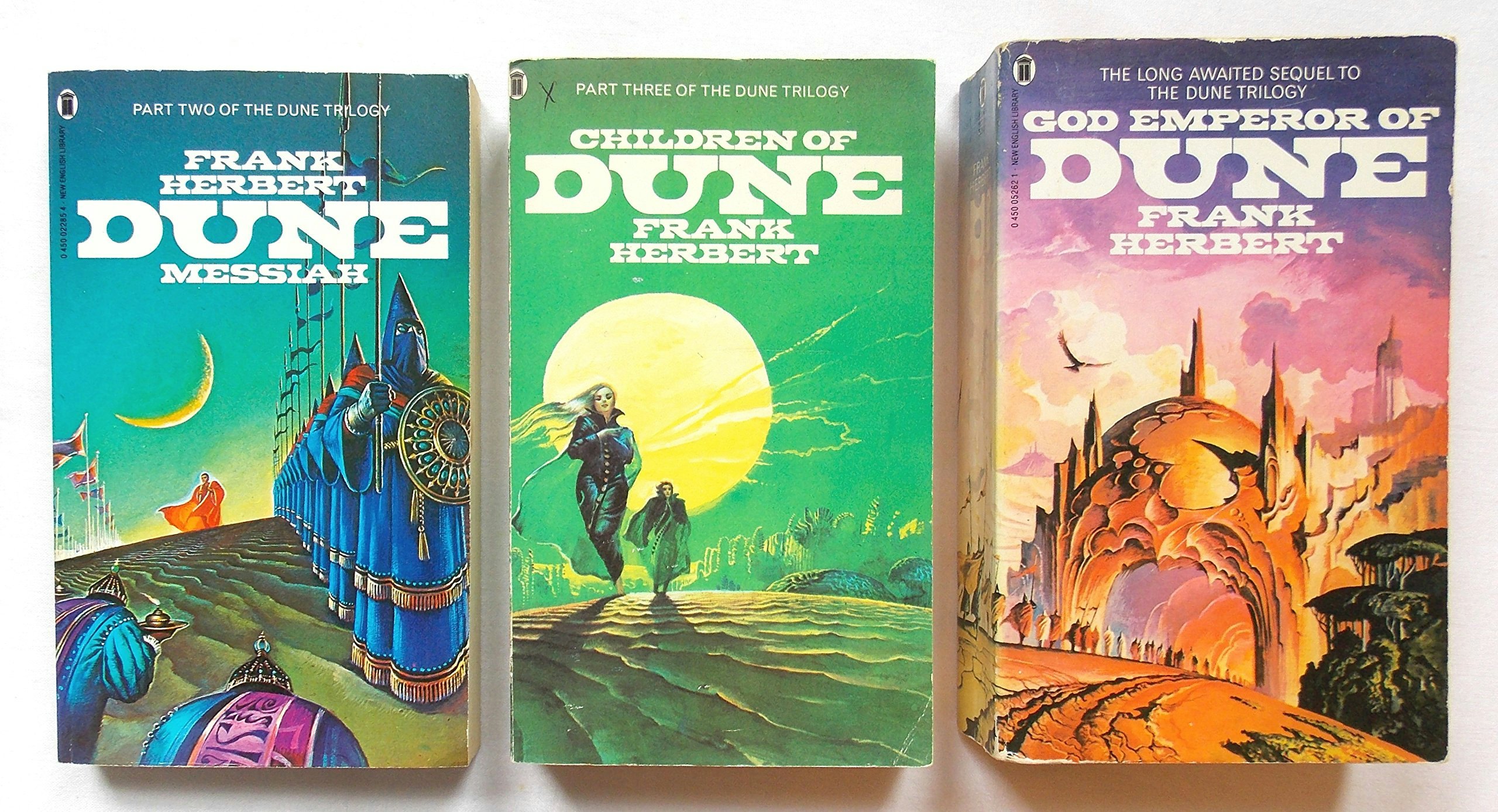

While some may argue those sidequests give us valuable insight into characters Herbert swiftly introduces and then kills off, it seems ridiculous to recommend reading over a dozen novels and short stories before getting to what really started it all-the first and most famous (and probably the best) work in the entire series. This way you experience the author’s sustained vision before embarking on sidequests and downloadable content.

That means we recommend reading the full collection of Herbert’s work first, and then going back to the very beginning to fill in the gaps, if you’re still interested. While the novel series moves backward and forward in time, we prefer sticking with a reading order based more on the chronology of publication rather than world building.

Like, really: you’ve got literally thousands of pages left to go.

So if you’re impatient for Villeneuve’s sequel-and who knows when ( or if) that will come out-your journey into the world of Dune has only just begun. The recent Dune film adaptation, directed by Denis Villeneuve, covers just part (part!) of the very first (just the first!) novel. There are also short story collections and illustrated books. The ecological/fantasy epic/sci-fi (?) concept grew faster than unimpeded dunes and would go on to comprise six door-stopping novels, and then, after Herbert’s death in 1986, some 18 prequel novels authored by Herbert’s son, Brian Herbert, and Kevin J. In Dune, Oregon turns to Arrakis, the desert prophets of the past make way for a young Paul Atreides, and the science of ecology is still very much the science of ecology-the highest function of which, the novel tells us, is “the understanding of consequences.” The image of dunes engulfing entire cities, of prophets and ecologists rising from such a world, incited years of religious and ecological research, all of which culminated in perhaps the most influential space epic of all time: Dune. He wrote on the use of grasses to slow the movement of the dunes, prevent them from spreading, from taking over. In 1957, author Frank Herbert traveled to the Oregon Dunes on a reporting assignment.


 0 kommentar(er)
0 kommentar(er)
